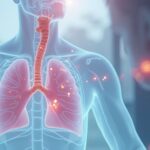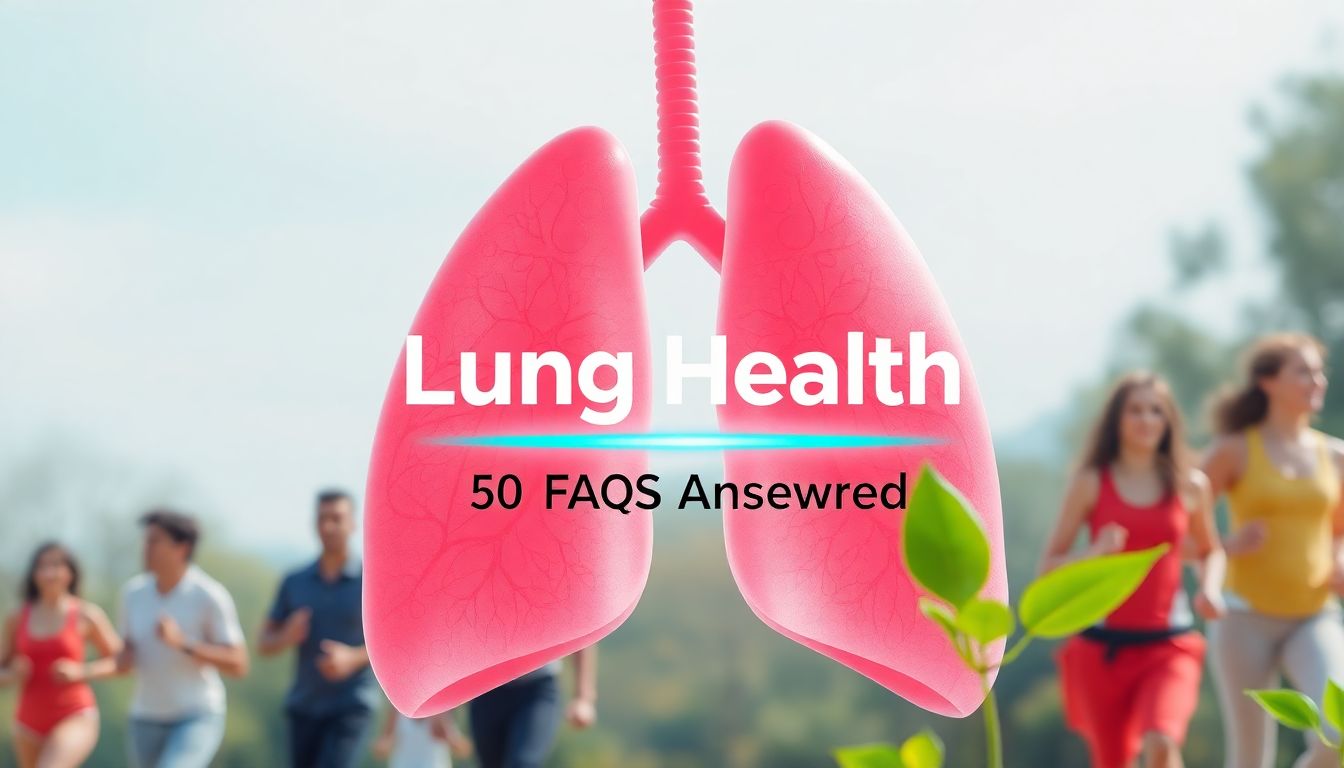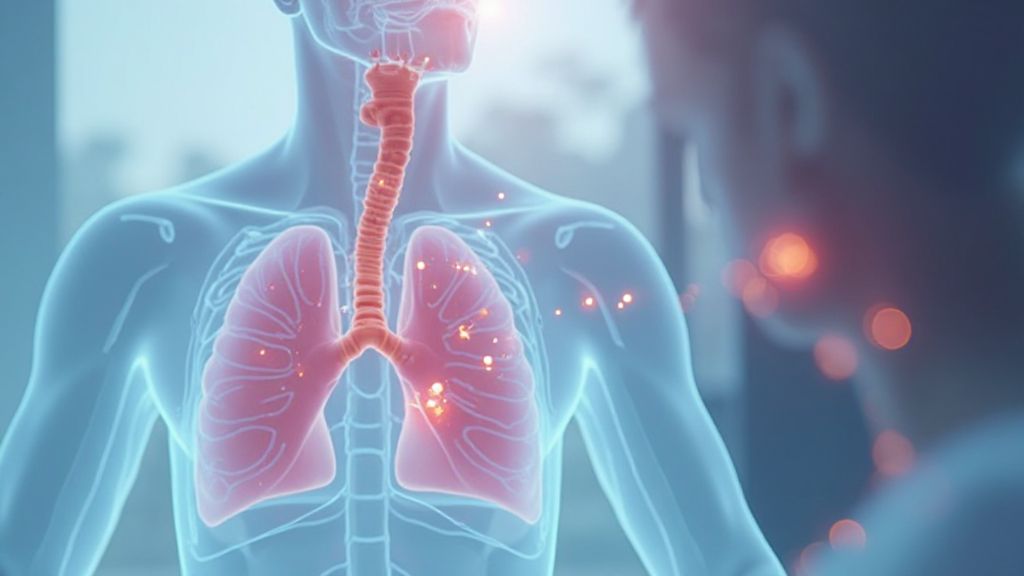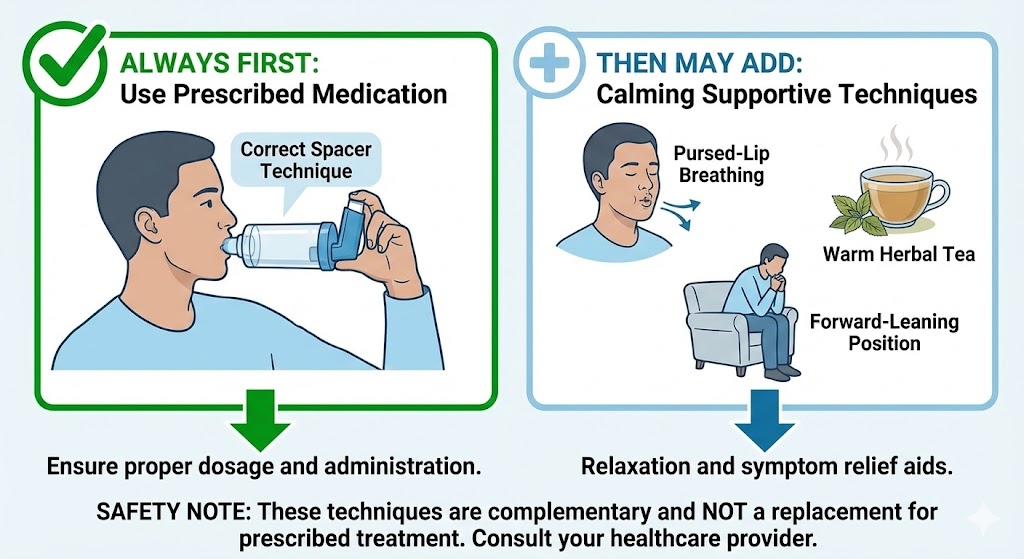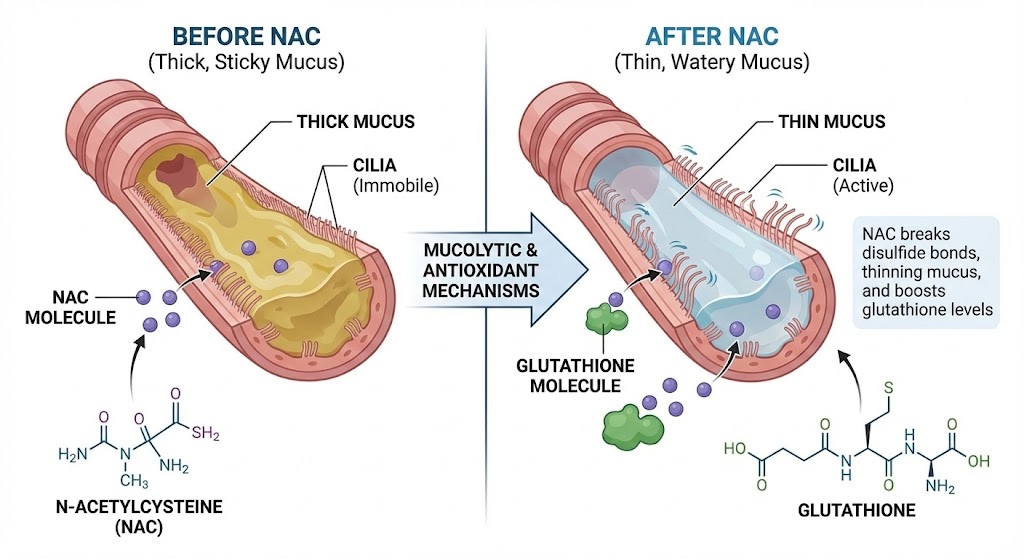Struggling with shortness of breath, coughing, or lung damage? Discover essential lung health tips with science-backed answers to 50 of the most pressing questions – all in one place. Whether you want to improve lung capacity, quit smoking, or protect against pollution, this guide covers everything you need to breathe easier. These expert-approved lung health tips are backed by pulmonologists and the latest research.
1. Improving Lung Capacity & Function
How can I improve my lung capacity?
→ Do aerobic exercises (running, cycling, swimming) and diaphragmatic breathing. Gradually increase intensity to train your lungs.
What are the best exercises for lung health?
→ Cardio (running, swimming), pursed-lip breathing, and yoga strengthen lungs. Avoid smoking and polluted air.
Can yoga help improve my lung function?
→ Yes! Pranayama (yogic breathing) expands lung capacity and reduces stress-related breathing issues.
Can regular swimming help improve lung function?
→ Absolutely. Swimming enhances oxygen efficiency and lung endurance due to controlled breathing in water.
How can I increase my lung capacity for running?
→ Train with interval running (sprints + jogging) and practice deep belly breathing to maximize oxygen intake.
Is there a way to strengthen my lungs before surgery?
→ Yes. Pre-hab exercises (deep breathing, walking) and quitting smoking 2+ weeks before surgery improve recovery.
2. Breathing Difficulties & Unexplained Symptoms
Why do I get out of breath so easily?
→ Possible causes: poor fitness, asthma, anemia, or heart issues. See a doctor if it worsens at rest.
Why am I always short of breath even when resting?
→ Could signal COPD, heart disease, or anemia. Seek medical evaluation—especially if paired with chest pain.
Why do I wheeze when lying down?
→ Common in asthma, GERD, or heart failure. Try elevating your head; if persistent, get checked.
Why does my chest feel tight all the time?
→ May be anxiety, asthma, or heart problems. Track triggers (stress, exercise) and consult a doctor.
Why do I feel a sharp pain in my chest when breathing deeply?
→ Could be pleurisy, muscle strain, or pneumonia. Sudden/severe pain? Seek emergency care.
What does it mean if I have a persistent dry cough?
→ Allergies, asthma, or acid reflux are common culprits. Lasts >3 weeks? Rule out infections or lung disease.
Is it normal to feel a burning sensation in my lungs while exercising?
→ No—could be exercise-induced asthma or poor air quality. Slow down and hydrate; if it continues, see a doctor.
Why am I always out of breath after climbing stairs?
→ Usually low fitness or excess weight, but could indicate asthma or heart issues if sudden or severe.
3. Smoking, Detox & Lung Recovery
How can I quit smoking to improve my lung health?
→ Use nicotine replacement therapy (gum, patches) or prescription meds (like Chantix). Support groups double success rates.
What’s the best way to clean my lungs after quitting smoking?
→ Exercise, hydration, and deep breathing speed up detox. Lung cilia repair in 2-9 months.
Can lung damage be reversed?
→ Partly. Quitting smoking stops further harm; COPD damage is permanent, but function can improve.
How does alcohol consumption affect lung health?
→ Heavy drinking weakens immunity, raising pneumonia risk. Moderate intake (1-2 drinks/day) has minimal effect.
4. Pollution, Allergies & Environmental Factors
How can I protect my lungs from pollution?
→ Wear N95 masks outside, use air purifiers indoors, and avoid outdoor exercise on high-pollution days.
Can air purifiers help improve lung health?
→ Yes—HEPA filters reduce indoor allergens and pollutants, aiding those with asthma or COPD.
Can allergies permanently damage my lungs?
→ Uncontrolled allergies may lead to chronic inflammation or asthma. Manage with meds/allergy-proofing.
Can exposure to mold cause lung problems?
→ Yes—black mold spores trigger allergies, asthma, or fungal infections. Fix leaks and clean with vinegar.
5. Lung Diseases & Prevention
How do I know if my lungs are damaged?
→ Warning signs: chronic cough, shortness of breath, wheezing, or coughing up blood. A spirometry test can confirm lung function issues.
What are the early signs of lung disease that I should be aware of?
→ Fatigue, persistent cough, mucus production, and chest tightness. Early detection improves outcomes—see a pulmonologist if symptoms last >3 weeks.
How can I prevent lung disease?
→ Avoid smoking, pollution, and toxins; exercise regularly; get vaccinated (flu, pneumonia, COVID); and eat antioxidant-rich foods.
How can I reduce the risk of lung cancer?
→ Quit smoking, test home for radon, limit processed meats, and eat cruciferous veggies (broccoli, kale).
Can secondhand smoke cause serious damage to my lungs?
→ Yes—it increases lung cancer, COPD, and asthma risks by 20–30%. Avoid exposure, especially in enclosed spaces.
What are the symptoms of pneumonia and how can it be prevented?
→ Symptoms: fever, chills, mucus-filled cough, chest pain. Prevent with vaccines (pneumococcal, flu) and handwashing.
What are the long-term effects of pneumonia on my lungs?
→ Severe cases may cause scarring (fibrosis) or reduced lung function. Rehab with deep-breathing exercises aids recovery.
What is pulmonary fibrosis and how can it be managed?
→ A scarring of lung tissue causing breathlessness. Treatment includes oxygen therapy, pulmonary rehab, and antifibrotic drugs.
How does chronic obstructive pulmonary disease (COPD) affect daily life and how can it be managed?
→ COPD causes breathlessness, fatigue, and frequent infections. Manage with inhalers, quitting smoking, and pulmonary rehab.
How can I manage COPD flare-ups effectively?
→ Use rescue inhalers, avoid triggers (smoke, pollution), and seek early treatment for infections.
What are the best ways to prevent chronic bronchitis?
→ Quit smoking, wear masks in polluted areas, and treat respiratory infections promptly.
Are there any natural remedies for bronchitis?
→ Hydration, steam inhalation, honey, and ginger tea ease symptoms—but antibiotics may be needed for bacterial cases.
6. Asthma & Respiratory Conditions
How does asthma affect my lungs and how can it be managed effectively?
→ Asthma inflames airways, causing wheezing and tightness. Control with inhalers, avoiding triggers (dust, pollen), and monitoring peak flow.
Is there a connection between heart health and lung health?
→ Yes—heart disease can cause fluid buildup in lungs (pulmonary edema), while lung issues strain the heart. Both need coordinated care.
7. Diet & Lifestyle for Lung Health
What foods are good for lung health?
→ Apples, berries, turmeric, leafy greens, and omega-3s (salmon) reduce inflammation. Avoid processed meats and excess salt.
Can a healthy diet improve my lung health?
→ Yes—Mediterranean diets (rich in fruits, veggies, nuts) are linked to better lung function and lower COPD risk.
How does aging affect lung capacity and function?
→ Lungs lose elasticity and strength after 30. Exercise and deep breathing can slow decline.
Can poor sleep quality affect my lung health?
→ Yes—sleep apnea strains lungs and heart. Treat with CPAP machines or positional therapy.
Is there a link between stress and lung health?
→ Stress worsens asthma and COPD. Practice pursed-lip breathing, meditation, or yoga to counteract it.
Can anxiety cause shortness of breath and other lung issues?
→ Yes—anxiety triggers hyperventilation. Try 4-7-8 breathing: Inhale for 4 sec, hold for 7, exhale for 8.
Are there any effective breathing techniques for stress relief and improved lung health?
→ Diaphragmatic breathing (belly breaths) and box breathing (4-4-4-4) reduce stress and boost oxygen intake.
What should I do if I’m constantly coughing up phlegm?
→ Hydrate, use a humidifier, and try expectorants (like guaifenesin). If phlegm is colored or bloody, see a doctor.
Want to Go Deeper?
If you’re battling mucus buildup, chronic cough, or post-smoking recovery, don’t miss our companion guide:
The Ultimate Guide to Clearing Mucus & Restoring Lung Health Naturally
Inside you’ll discover:
✅ 5 science-backed ways to thin stubborn mucus (including a 3-day hydration trick)
✅ The lung-cleansing tea recipe pulmonologists recommend
✅ Step-by-step detox plan for ex-smokers
✅ Warning signs your phlegm might need medical attention
“After reading this, I finally understood why my cough wouldn’t go away—and fixed it in 2 weeks!” – Mark T., verified reader
Click here to Heal Your Lungs Naturally →
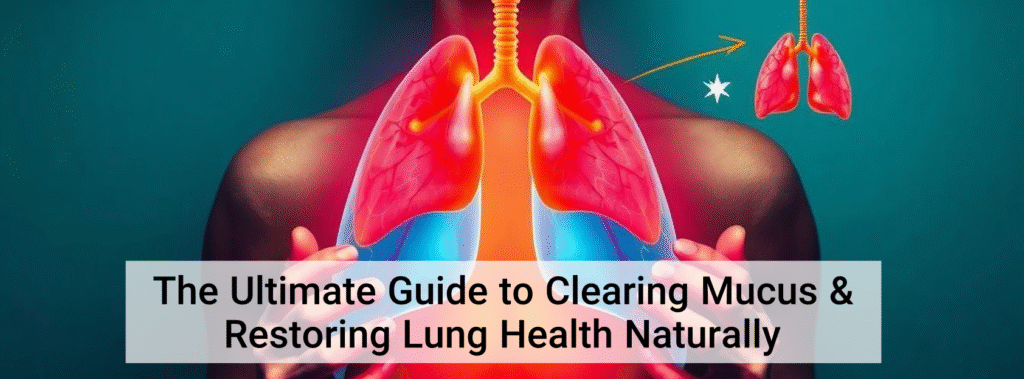
Click on Image above to Learn More
7-Second Morning Habit That Cleared My COPD (Doctor-Approved)
Check out our comprehensive Lung Health Resource Center.

